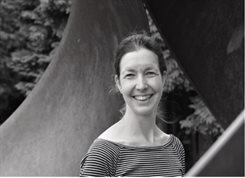Through the support of the Wellcome Trust, the Renewing Phenomenological Psychopathology project provides a £1500 stipend for researchers in phenomenological psychopathology, or other allied disciplines, who want to spark new ideas in the field by organising a sandpit event. A sandpit event is one where academics from disparate academic and institutional backgrounds collaborate in creative ways over a set period of time. The provided funding can be used for either online or in person support. The goal of such an event is to generate innovative, interdisciplinary research groups and projects under a given theme. Under this project, the sandpit event would (either online or in-person) bring together interdisciplinary researchers (for example, from the humanities, social sciences, lived experience, clinical practice) outside of phenomenology and mental health to expand the disciplines in the group, and to develop new groupings and responses to our problem of renewing and reinvigorating phenomenological psychopathology. Following the completion of the interdisciplinary expansion sandpit, awardees would be required to submit a 750-word summary detailing the outputs of the event.
The Application Process (This funding award has finished)
Applicants are required to submit:
- Either a 750-word proposal or a 5-minute video that tells us what your sandpit event would look like, the disciplines you intend to bring together, what the group’s focus will be in addressing renewing phenomenological psychopathology and what kind of outputs you expect to produce. Your proposed sandpit will need to comply with the BPA/SWIP guidelines for accessible conferences: Guidelines for Accessible Conferences.pages (bpa.ac.uk).
- A 100-word biography and brief 1-page CV for each applicant (if you are submitting as a team a biography would be required for each member).
Submissions should be sent to phenompsych@contacts.bham.ac.uk. The deadline for applications was 1st of June (midnight UK).
Abstracts will be reviewed by members of the Renewing Phenomenological Psychopathology team and our international advisory board. While we will notify all applicants of the outcome of their submission, we will not supply individual feedback on the applications which are unsuccessful.
Eligibility
You must hold a PhD in a relevant field or have equivalent research or lived experience.
An important aspect of this project is to diversify the field of Phenomenological Psychopathology. We encourage applications from the widest range of backgrounds, perspectives and experiences to maximise innovation in the field. We are particularly keen to receive submissions from female applicants, gender diverse applicants, early career researchers, those with lived experience of mental health difficulties, and researchers from the global south/non-WEIRD (western, educated, industrialized, rich, and democratic) countries.
Accessibility
We will be happy to provide adjustments to ensure that people from the widest range of backgrounds can participate fully in the selection process. If you need an adjustment when accessing the application form, or for any other part of the application process, please contact us at phenompsych@contacts.bham.ac.uk and we will do our best to accommodate you.
Award Winners
Rosa Ritunnano
 Rosa Ritunnano is Consultant Psychiatrist in a specialist Early Intervention in Psychosis Service in the UK, and a joint doctoral researcher at the Universities of Birmingham and Melbourne. Her research explores the experience and meaning of delusions in psychosis from multiple disciplinary perspectives, focusing on the applications of phenomenology across psychiatry, psychology, philosophy and linguistics.
Rosa Ritunnano is Consultant Psychiatrist in a specialist Early Intervention in Psychosis Service in the UK, and a joint doctoral researcher at the Universities of Birmingham and Melbourne. Her research explores the experience and meaning of delusions in psychosis from multiple disciplinary perspectives, focusing on the applications of phenomenology across psychiatry, psychology, philosophy and linguistics.
Jeannette Littlemore
 Jeannette Littlemore is a Professor of Applied Linguistics in the Department of English Language and Linguistics at the University of Birmingham. Her research focuses on the role played by figurative language in the sharing of emotional experiences. She also explores the role played by metaphor and metonymy in language learning in cross-cultural communication and language learning.
Jeannette Littlemore is a Professor of Applied Linguistics in the Department of English Language and Linguistics at the University of Birmingham. Her research focuses on the role played by figurative language in the sharing of emotional experiences. She also explores the role played by metaphor and metonymy in language learning in cross-cultural communication and language learning.
Anke Maatz
 After an MD in experimental attachment theory, Anke joined the Psychiatric Hospital, University of Zurich for clinical training in psychiatry and psychotherapy and a Postdoc position in an interdisciplinary project on the conceptual history of ‘schizophrenia’. In 2020, she started her own research group Humanities in Mental Health at the Psychiatric Hospital, University of Zurich, where she is also involved in implementing participatory research.
After an MD in experimental attachment theory, Anke joined the Psychiatric Hospital, University of Zurich for clinical training in psychiatry and psychotherapy and a Postdoc position in an interdisciplinary project on the conceptual history of ‘schizophrenia’. In 2020, she started her own research group Humanities in Mental Health at the Psychiatric Hospital, University of Zurich, where she is also involved in implementing participatory research.